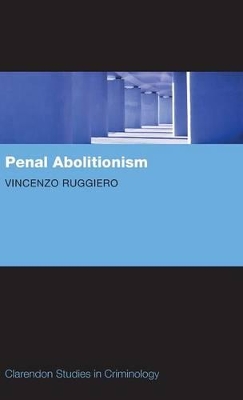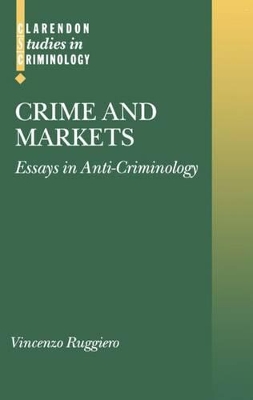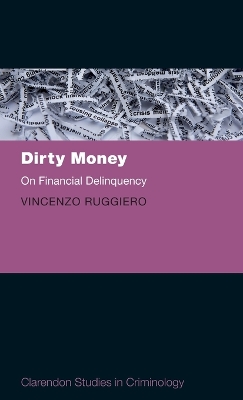Clarendon Studies in Criminology
3 total works
Abolitionism is not only a strategy or a set of demands, aimed at the reduction (or suppression) of custody, it is also a perspective, a philosophy, an approach which challenges conventional definitions of crime. This book examines the origin, philosophy and achievements of abolitionism and reviews the literature on penal abolitionism from the 1960s to the 1980s.
By collecting and discussing the key abolitionist arguments, the author critically analyses the views expressed by its leading proponents; Nils Christie, Louk Hulsman, Thomas Mathiesen and Herman Bianchi, examining in particular how their views took shape, their philosophical foundations, and the social and political context of abolitionist ideas and perspectives. Policies, such as the virtual abolition of custody for young offenders in Italy, are presented and the area of informal justice is also addressed, with an overview of mediation and compensation practices, and an assessment of the degree of their effectiveness and desirability.
Through assessment of these achievements and experiments of specific abolitionist ideas, the author attempts to identify the legacy of abolitionism from a European perspective, whilst bringing into focus more recent contributions concerning the study of terrorism and war.
By collecting and discussing the key abolitionist arguments, the author critically analyses the views expressed by its leading proponents; Nils Christie, Louk Hulsman, Thomas Mathiesen and Herman Bianchi, examining in particular how their views took shape, their philosophical foundations, and the social and political context of abolitionist ideas and perspectives. Policies, such as the virtual abolition of custody for young offenders in Italy, are presented and the area of informal justice is also addressed, with an overview of mediation and compensation practices, and an assessment of the degree of their effectiveness and desirability.
Through assessment of these achievements and experiments of specific abolitionist ideas, the author attempts to identify the legacy of abolitionism from a European perspective, whilst bringing into focus more recent contributions concerning the study of terrorism and war.
This book examines a range of criminal activities conducted in different European contexts. Offences committed by individuals and groups endowed with different resources and status are examined. Each chapter contains an implicit rejection of generalizations and attention is paid to variations and differences. Rather than searching for a unified theory of crime, the author highlights the interpretive oscillations, which always occur when we are faced with criminal behaviour. In other words, each time we subscribe to one cause of crime we may realize that also the opposite cause possesses some reasonable validity. The originality of this book consists of the `causality of contraries' running through the chapters, whereby a tentative aetiology identified in one context finds its complete overturning in anther. The author regards the `causality of contraries' as a crucial aspect of the anti-criminological tradition to which he claims affiliation. These `essays in anti-criminology' deal with crimes of both the powerless and the powerful, and seek to demonstrate that both the deficiency and the abundance of legitimate opportunities may lead to crime.
In the first part of the book a conventional criminal activity par excellence is examined, namely activity related to the economy of illicit drugs. In this economy the author notes a shift from a Fordist to a Toyota model of criminal activity, a shift determined by the expansion of demand and the growing variety of supply of illicit drugs. The second part of the book addresses specific cases of elite criminality, including illicit trafficking in arms and human beings. The chapters devoted to the analysis of political and administrative corruption in Italy, France, and Britain provide yet other examples of how illegal practices may be imputed to one cause in one context and its opposite in another. Two Intermezzos complete the book, posing more general questions, respectively, around the very concept of illicit `drugs' and the evasive character of illicit economic behaviour.
In the first part of the book a conventional criminal activity par excellence is examined, namely activity related to the economy of illicit drugs. In this economy the author notes a shift from a Fordist to a Toyota model of criminal activity, a shift determined by the expansion of demand and the growing variety of supply of illicit drugs. The second part of the book addresses specific cases of elite criminality, including illicit trafficking in arms and human beings. The chapters devoted to the analysis of political and administrative corruption in Italy, France, and Britain provide yet other examples of how illegal practices may be imputed to one cause in one context and its opposite in another. Two Intermezzos complete the book, posing more general questions, respectively, around the very concept of illicit `drugs' and the evasive character of illicit economic behaviour.
Navigating financial crashes of the Late Middle Ages up to the present day and analysing them through the lenses of classical, positivist, functionalist and Marxist criminology, Dirty Money: On Financial Delinquency explores the growth of grey areas in the financial world and our understanding, or misunderstanding, of financial delinquency.
Pope Francis, while denouncing the incapacity of governments to reduce poverty and fight the exploitation of cheap labour, has also condemned greed, repeating several times the old medieval adage: money is the excrement of the devil. This distinction between clean and excremental, pure and impure, informs the symbolic order of many traditional and contemporary societies; however, it can also be used to single out criminal activity as opposed to law-abiding conduct and, in particular, to separate acceptable from unacceptable practices in the economic domain. With a focus on financial crime, whose ambiguity, ubiquity and evolving nature make the separation between acceptable and unacceptable practices inherently problematic, this book examines the process whereby the excrement of the devil was slowly 'freed' from both its sinful and criminal character. It is a study of how human action turns something seemingly benign into an instrument for the production of harm. Its focus, therefore, is on dirty money - namely the illegitimate appropriation of financial resources by individuals and groups holding expert knowledge and, often, occupying positions of power. The ideological arguments accompanying this evolution are scrutinised, alongside the history of financial initiatives and the accompanying 'crunches'. The struggle juxtaposing criminalization and decriminalization is at the core of all chapters, which analyse a series of major events chronologically, from the exploits of John Law to the deeds of contemporary finance.
Analytically located in the area of white-collar crime, Dirty Money examines episodes of financial delinquency and discusses the way in which observers, including criminologists, shape an understanding of their causes and consequences. It will be of interest to scholars and students of criminology, sociology, criminal justice, history, and economics, as well as policy makers, finance professionals, and fraud investigators.
Pope Francis, while denouncing the incapacity of governments to reduce poverty and fight the exploitation of cheap labour, has also condemned greed, repeating several times the old medieval adage: money is the excrement of the devil. This distinction between clean and excremental, pure and impure, informs the symbolic order of many traditional and contemporary societies; however, it can also be used to single out criminal activity as opposed to law-abiding conduct and, in particular, to separate acceptable from unacceptable practices in the economic domain. With a focus on financial crime, whose ambiguity, ubiquity and evolving nature make the separation between acceptable and unacceptable practices inherently problematic, this book examines the process whereby the excrement of the devil was slowly 'freed' from both its sinful and criminal character. It is a study of how human action turns something seemingly benign into an instrument for the production of harm. Its focus, therefore, is on dirty money - namely the illegitimate appropriation of financial resources by individuals and groups holding expert knowledge and, often, occupying positions of power. The ideological arguments accompanying this evolution are scrutinised, alongside the history of financial initiatives and the accompanying 'crunches'. The struggle juxtaposing criminalization and decriminalization is at the core of all chapters, which analyse a series of major events chronologically, from the exploits of John Law to the deeds of contemporary finance.
Analytically located in the area of white-collar crime, Dirty Money examines episodes of financial delinquency and discusses the way in which observers, including criminologists, shape an understanding of their causes and consequences. It will be of interest to scholars and students of criminology, sociology, criminal justice, history, and economics, as well as policy makers, finance professionals, and fraud investigators.


